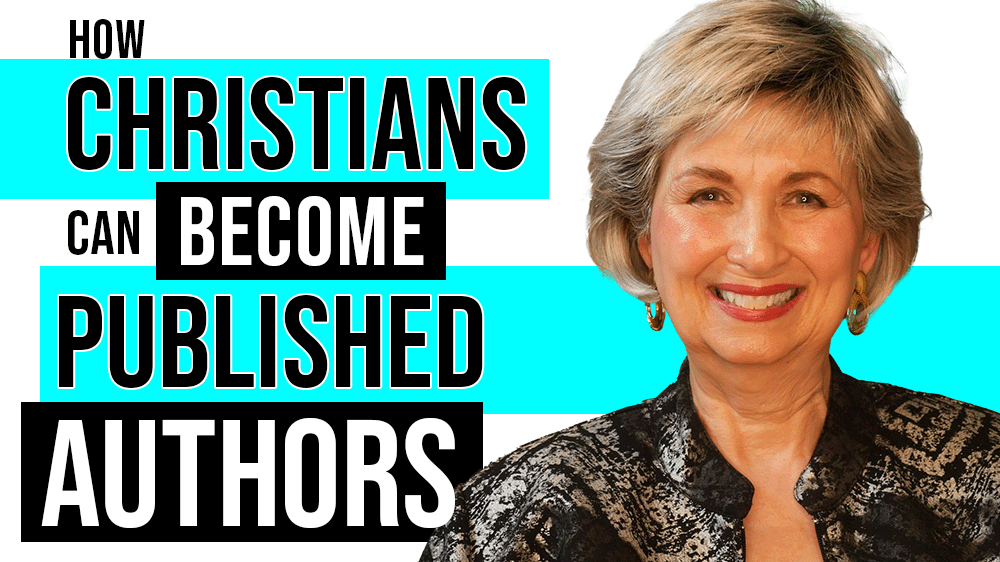These days, it’s getting harder for an unpublished writer to approach a traditional book publisher without a literary agent.
Why? Because the industry is saturated with writers who want to be traditionally published. Since publishing houses spend tremendous amounts of time, resources, and money on each book slated for release, the safest word acquisition editors can utter when holding your book proposal in their hands is “No.”
That’s the bad news.
But did you know that as a writer you can negotiate your own book contract with a traditional publisher? Believe it or not, there still are a few traditional publishing houses that accept unsolicited manuscripts, which means they’ll work with un-agented writers. “Is an agent absolutely essential in order for me to land a traditional publishing contract?” you may be wondering.
The answer is “No.”
And that’s the good news. But there’s more to this story…
Can I tell you a personal story?
Before securing a literary agent, I personally negotiated about ten book contracts with traditional publishers. In those days, publishers negotiated more freely with writers. The involvement of agents wasn’t as essential. It went like this:
I’d sign the publisher’s standard book contract, agreeing to 8% to 10% of ongoing royalties. There might be a small advance royalty payment, often not. When I ran into problems with an editor, I worked it out myself, even if it took me away from writing. If an royalty check didn’t arrive, or came three months late, I contacted the publisher myself. Not fun.
Then I met my literary agent, Greg Johnson. We had met through an author-friend, Dr. Calvin Miller who had been working with Greg for several years. Calvin kindly invited me to his home to have dinner with him and his lovely wife, Barbara, and introduced me. Greg invited me to become one of his clients, and I was thrilled to accept his invitation. Best decision I’ve ever made for my writing career.
Greg and I have been working together for the past 25 years. He has negotiated more than 20 book contracts for me with the world’s top traditional publishers. He knows editors and publishers by their first names, keeps in touch with them and their publishing needs, and negotiates huge royalty advances and on-going royalty rates. Thinking back to my earlier days, I know that would have been impossible for me to do as an individual writer. That caliber of literary representation takes time, money, and effort.
So when a writer comes up to me and asks: “Do you think I need a book agent?” I always say, without question or hesitation, Yes!
Good literary agents are worth their weight in gold.
What can a literary agent do for me?
Not all literary agents are equal. It’s difficult to get connected with an agent who has as much experience as Greg Johnson, for example. When choosing which agent is right for you, you’ll need to use a certain level of discernment. But generally speaking, most literary agents can:
- Guide you in your career, confirming book topics that are currently “hot” and those that may have become “cold.”
- Advise you about various publishing needs that some editors may have. Agents keep their fingers on the pulse on the marketplace. They are in constant communication with publishing houses to learn what they’re looking for in book topics and what gaps in the industry their writers can fill.
- Brainstorm an idea with you.
- Teach you the nuts and bolts of the industry from their own experiences (it helps if your agent is also a writer).
- Instruct you on how to write a first-class book proposal. This is essential! Your proposal has the power to make or break your chances of landing with a traditional publisher, and it’s designed to answer every question an editor might ask about your book: topic, length, deadline, genre, competition, etc. Your agent will help you get your proposal up to professional standards before it’s pitched.
- Research the publishing houses and their current needs, and place your proposal with the right publisher at the right time. As you work on the content of the book, agents use their expertise to find it a good home in the publishing marketplace.
- Negotiate higher advance royalties. As a writer who is working on a book, you can use the extra upfront income on traveling costs, interviews, upgrading the tools of your trade, getting a new laptop, etc. Some advances are big enough to allow you to quit your day job and write full time.
- Negotiate on-going royalties that are paid to you based on each book that’s sold. Gone will be the days of 8% – 10% royalty rates. Your literary agent has the power to greatly influence a higher percentage.
- Negotiate all the details involving a publisher’s contract, including copyrights, foreign rights, film rights, translations into other languages, legal options, and other technicalities.
- Intervene on your behalf when there are disagreements between you and publisher. Common disagreements include the changing of your book’s title or subtitle, the selection of a front cover that you might detest, and editorial decisions that significantly change the direction/plot/voice of your manuscript. Agents represent their authors in these disputes and will do all they can to help you “win” some of these battles. Some battles are won; others are lost. But, probably, all of them would be lost without a literary agent.
- Make sure the publisher honors the book contract. It’s not just about securing the contract. Agents ensure that every jot and tittle are adhered to in the process and final production of your book.
- Ensure that you receive the publisher’s check on time and in the correct amount.
- Negotiates various types of additional contracts. For instance, if you are writing a book with a collaborator, agents can help navigate that often-difficult partnership, along with contracts that involve story rights with families.
- Help you meet the publisher’s deadline, or negotiate a reasonable extension of time. As a writer, this can be one of the most significant advantages of having an agent, especially when unforeseen events or medical issues interfere with your ability to generate timely content.
Securing a competent literary agent is an important step in your professional writing journey. But at what cost?
How much should I pay an agent?
Literary agents, just like authors, have to be paid. Remember, writing and selling books is a business, and there are plenty of overhead expenses for agencies and agents. If you’ve ever wondered how much agents make from their clients, here is the typical arrangement:
Agents make 15% of your book advance and your royalties.
This is the most common arrangement between an agent and author (there are exceptions). The money is paid to the agent by the publisher after the author receives royalties. In other words, you’ll never have to dig in your purse and pay an agent yourself. If you don’t make money, your agent doesn’t make money.
Good literary agents are worth their weight in gold.
Also, in a typical arrangement, the publisher takes care of issuing all payments to your agent, so you don’t have to worry about that. The more money your agent can negotiate for you, the more money your agent makes—a fantastic incentive for the both of you. Win-win!
You may be thinking that 15% of advance and royalties are a lot, but let me assure you: your agent earns every single penny of that payment.
Why don’t all writers work with agents?
If there are so many advantages to working with a literary agent, why doesn’t every writer opt for representation? Here are several reasons:
- High-quality literary agents are few in number. Sure, there are lots of younger agents just getting their feet wet in the industry. But the experienced agents—the ones who know the industry inside and out—are few and far between.
- High-quality literary agents might not have openings for new writers, especially if they are working with more clients than they can serve. Sometimes, agents simply lack the bandwidth required for a new client.
- High-quality literary agents often want proven authors who publish many books that sell well.
Most writers have felt the frustration of this last point. Literary agents need writers who can land consistent book deals. But, and here’s the catch-22, landing consistent book deals with traditional publishers often requires a literary agent!
Chin up! Here’s the good news!
Yes, it can be difficult securing a literary agent, especially if you’re an unpublished author. However, here are two reasons that should encourage you to continue pursuing literary representation:
- Literary agents are always on the lookout for new writers who have great ideas. And by “great” ideas I mean unique ideas with unique slants and a first-class writing style. Remember, writers sell ideas to publishers, not books. When it comes to approaching a traditional publisher, a great idea is your best marketing tool.
- If your book idea is unique and great, if you have proven you can honor your publisher’s deadlines, if you have a creative writing style that communicates directly with your target audience, if you have a passionate message that you must share with others, and if you have written a professional book proposal, then your chances of finding a literary agent to represent you are good.
How do I find a literary agent?
Sometimes finding a literary agent happens overnight. But for most of us, it takes time, research, patience, and determination. Here are 9 practical steps that can help guide you through the process:
- Ask Your Friends: If you have writer friends who are already working with literary agents, consider asking them to recommend you (if they think you would be a good match with their agent).
- Identify Your Genre and Target Market: Make sure you have identified the literary genre of your book so that you can find the right agents who specialize in your type of work. Look for agents who represent authors who write in your particular genre.
- Research Literary Agents: Check out websites and blogs that are written and maintained by literary agents (there are plenty of them) and make sure those agents are actively seeking new clients. You can also use resources like Writer’s Market, QueryTracker, and the Association of Authors’ Representatives (AAR) to compile a list of potential agents. Read about their clients and sales, and try to get a sense of their individual preferences and literary needs.
- Check Submission Guidelines: After you have compiled a list of potential agents, check their submission guidelines. Each agent (or agency) will have different requirements. Some accept submissions via email (or snail mail). Others will have an online form on their website that you will need to fill out. Be prepared for them to ask you for a query letter or book proposal. If you are writing fiction, the agent may ask you for a completed manuscript. Be ready to pitch your book to your potential agent in person, over the phone, or via Zoom meetings.
- Write a Query Letter: A query letter is a one-page letter that pitches your book to a literary agent. The purpose of a query letter is to introduce your book and briefly explain why it would interest the agent’s target market. It must also provide a short overview of your credentials as a writer, and demonstrate your familiarity with the agent’s preferences. Craft your query letter in a personal yet professional manner.
- Prepare a Top-Notch Book Proposal: Depending on the agent’s submission guidelines, you will need to already have written a book proposal or a completed manuscript. Before you submit the proposal, make sure it’s as polished as possible. Ask your writing friends to proof it for you. For more information on crafting a book proposal, check out our FREE class: How Christians Can Become Published Authors.
- Send Your Submission and Wait: After submitting your materials, be patient. You will likely have to wait for a response. Depending on the agent or agency, you may have to wait a few weeks or possibly a few months. Exercise patience during the waiting game. Stay positive.
- Handle Rejections Like a Professional: Every writer is going to face rejections. That’s just how it is. Rejections are a normal and expected part of the publishing process. But make sure that when they come, you handle them professionally. Don’t take it personally. Don’t let rejections discourage you. Each rejection is a learning opportunity. If the agent offers feedback of any kind in the rejection letter or email, study it. Use the constructive criticism to help improve your future submissions.
- Consider Offers Carefully: If an agent expresses interest in your work and offers to represent you, that’s a great thing! Celebrate the moment and ride the momentum. However, before you agree to be represented, make sure that you carefully consider the offer. Have a conversation with the agent so that you understand the commission rate, what expenses you’ll be responsible for, and how your agent plans to support your career. And as always, it’s a good idea to consult with a lawyer before signing a contract or agreement.
Final Thoughts
After 25 years of working with Greg, I can’t imagine going it alone with a traditional publisher. Not only does he make my job as a writer much easier, he also makes the process enjoyable.
Let me put it this way: I would no more approach a traditional book publisher right now without a literary agent than go to court without a good lawyer.
Sure, you can do it alone. Like I mentioned, there are still traditional publishers who are willing to talk with unrepresented writers. But having a literary agent who can handle the contractual process and who can hold the publisher accountable is priceless.
Finding a literary agent can be a long process. But don’t be discouraged. Stay determined and persistent. At the end of the day, your ability to prove that you can produce consistent, top-notch manuscripts is your ultimate failsafe. Agents depend on a writer’s royalties to stay afloat, so make sure your manuscripts are airtight, sellable, and buoyant enough to rise to the top of the editorial stack of book proposals.
Remember, the God who has given you words to share with the world through the publication of a book will not abandon you in the process. He will guide you every step of the way as you locate the best publisher for your book and also the best representation for the talents you steward for Him.


Subscribe to our Free

Receive writing tips, links to exclusive “Q&A with Denise” sessions, information on upcoming events, and special discounts directly in your email.






